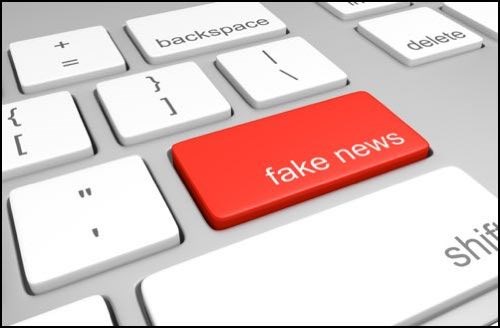Clunky footsteps rhythmically approach like bored fingers tapping on a desk.
A hand grips the chain dangling from the darkness above the cold, rigid chair. A yank. A click. And then a glaring light.
The burly figure behind the orb is sensed, not seen. Between the stiff armrests, limbs squirm and a heartbeat echoes.
“Are you fake news?!” the voice demands.
Welcome to Interrogation 2017, where a skeptical public and even the US president have placed the traditional news media under unfamiliar scrutiny.
The term “fake news” originated during the 2016 US presidential campaign, when certain websites began cranking out purposely false stories in a bid to sway the election. Since then, the term has been used to describe real and perceived errors of any kind appearing in the news media.
While the exercise of calling out “fake news” is in part designed to discredit reporters who speak unpleasant truth to power, it has also exposed the inherent flaws of journalism.
That’s a good thing. For a variety of reasons, journalism is not the ironclad purveyor of truth the public expects. It is, at best, what legendary journalist Carl Bernstein calls “the best available version of the truth.”
Many errors found in the media are of an honest nature.
One mistake that appeared in The Reminder in the 2000s saw us report that an “interrogation system” would be installed at Flinty’s Park. Ummm, that should have read “irrigation.”
In another instance, a couple of wires got crossed in the brain of a reporter. The result saw one Flin Flonner named Andy incorrectly identified as the owner of a local business instead of a different Flin Flonner named Andy.
Other mistakes aren’t so innocent and stem from journalistic overreach.
Several years ago, the Winnipeg Free Press wrote a piece on a murder in the Manitoba capital. Police did not release the victim’s name, so their reporter spoke with neighbours to identify the victim.
Or so he thought. The Free Press printed the wrong name. A different man had been killed.
The newspaper defended itself by pointing out that two neighbours of the victim had separately provided the wrong name.
It never occurred to the Free Press that multiple sources – which supposedly make news stories bulletproof – could be wrong. Was it really in the public interest to try and circumvent the cops in this case?
In other cases, people discern “fake news” when they disagree with a statement of opinion someone has made.
A local example of this came years ago during a debate over whether to allow residential development on a piece of parkland in Denare Beach.
Opponents of the development suggested the park was a popular gathering spot for children. When supporters were quoted as saying barely anyone used the park, one opponent suggested The Reminder run a retraction.
This wasn’t “fake news” in any real sense, since two groups of people simply differed on their opinions of park usage. No one can observe a park for 24 hours a day, so who knows whether the park was slow or busy? What even constitutes slow or busy?
Sometimes journalists do everything in their power and still produce what ends up being “fake news.”
The late Iraqi dictator Saddam Hussein’s alleged weapons of mass destruction provide a tragic example.
Journalists on the beat in the lead-up to the US-led war in Iraq talked to all kinds of people, writing all kinds of multiple-source stories, to “confirm” the existence of Saddam’s weapons.
Either through honest mistake or deliberate deceit, all of those sources were untruthful. Reporters can fact-check all day long, but if all of their sources are wrong, their facts will also be wrong.
Journalism is as fallible as any other industry. The “fake news” we see is usually unintentional, but that doesn’t mean reporters can’t do a better job of being skeptical and, more importantly, learning those three magic words: “I don’t know.”




